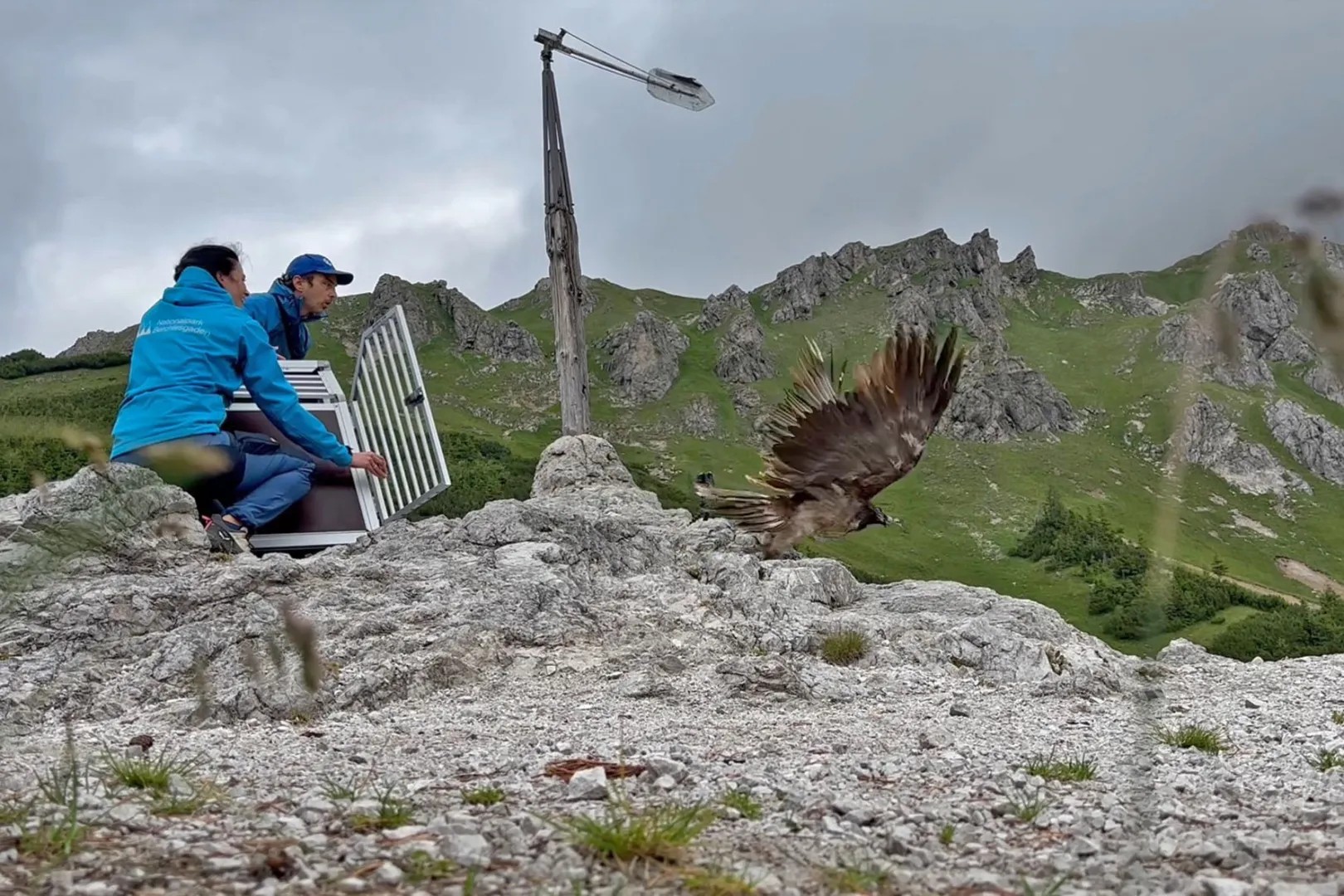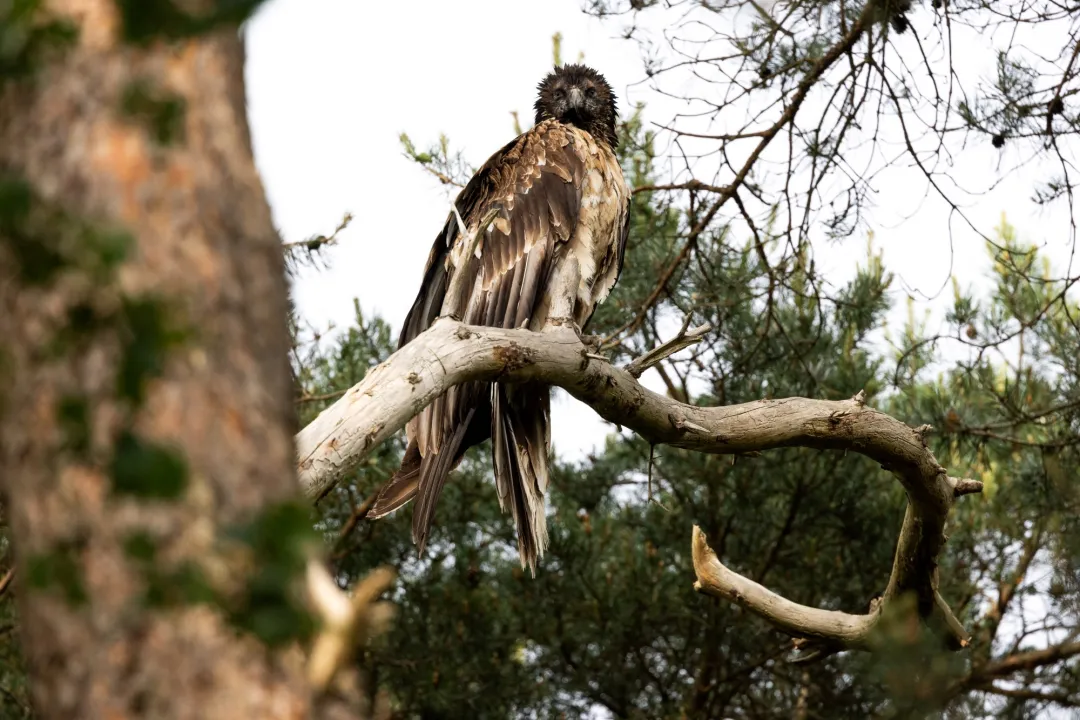…that 100 years after the killing of the last wild bearded vulture in the Alps, in Aosta (Italy), in 1913 (see photo), there are now 43 breeding pairs of this species across this European mountain chain?
The reintroduction of bearded vultures into the Alps – led by the VCF and many national or local NGOs and protected areas – is one of the world´s most successful comeback stories.
Based on captive breeding and release – a total of 216 young has been released in the Alps since 1986, the species has started to breed in the wild in 1997 (11 years after first release – the birds usually only mature sexually at that age), and is now increasing exponentially, with a very good breeding productivity.
The VCF and its partners are now investing in connecting the Alpine population with other reintroduced or natural populations such as the one in the French Massif central or in the Pyrenees, through the LIFE GYPCONNECT project.
Vultures play a very important role in the world´s ecosystem – they are nature’s clean-up crew. They don’t kill, they eat the flesh of other dead animals, thus helping to reduce the spread of disease and eliminating the need for the treatment and incineration of thousands of tons of animal remains every year, saving us millions of euros in waste management and potential emissions of hundreds of thousands of tons of C02 per year.
Unfortunately, they face a range of threats and so populations of many species are under pressure and some species are facing extinction – the VCF is working hard in Europe to minimize those threats and actively work on the ground with several populations to increase them.
More globally, the VCF and its partners have developed a Vulture Multi-Species Action Plan (MsAP), prepared in the framework of the Convention for the Migratory Species, that list the priority actions that need to be taken in order to improve the conservation status of 15 species of old world vultures. The Vulture MsAP will hopefully be approved by all signatory states in the next Conference of the Parties this fall, and will then be a significant tool to address these massive poisoning incidents and therefore revert the decline of several vulture species.
It is important to promote the conservation of vultures to a wider audience and highlight the important work being carried out by the world’s vulture conservationists, and today´s International Vulture Awareness Day is a great opportunity for that. Support the VCF by donating to us, or by spreading the message about our work and activities: see www.4vultures.org/news for info on our projects and vultures more widely.
Photo: VCF




